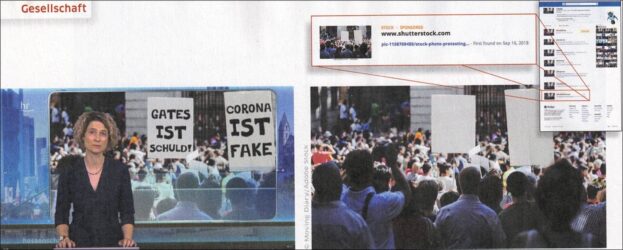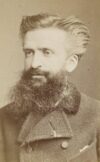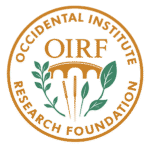Here is the translation that I’ve worked away on over the past few weeks. Because this is political in nature, the vocabulary is not as familiar to me as medical terminology. And of course, since the article is written by a veteran and highly respected journalist and journalism teacher, I wanted to make sure I translated what he actually said (implications and all) rather than interpret what I thought he meant. I must say too, that this could only ever have been published in that amazing contemporary journal raum&zeit [= space & time]. I understand that this article is about what’s happening in Germany, but my goal is to get you thinking about what is happening here – to change your perspective of what we are seeing in the media. In English I believe we are even more controlled than in Germany and Europe where alternative medicine is more recognized and accepted. But we must take heed. Written by Peter Orzechowski the article is called: “Corona Makes It Possible; Takeover of the State Media”.
s/Carolyn
Society
Corona Makes It Possible
Takeover of the State Media
The COVID-19 virus has not only infected people, but also democracy: Our fundamental rights were taken from us, freedom of speech [the free expression of opinion] was suspended and the media brought into line. raum&zeit author Peter Orzechowski describes the decline of a journalism that was at one time the fourth power in the state.
I worked as a journalist for over 40 years. For nearly 20 years I have trained journalists in different academies. And today I ask: Was everything for nothing?
What the mass media delivers nearly unanimously has nothing to do with the journalism I learned and then passed on – from the editor of the newspaper or the news magazine about daily topics with today’s announcer, up to the employees of the press agency, to the radio broadcasting conversationalist, to the social media texter, to the talk show hosts – because they all ignore the basic principles of serious journalism.
They feed official horror numbers through to the public without questioning how these generally came about. They ruminate only about what a few experts utter from the Robert-Koch Institute and the Berliner Charité, and denigrate the well-founded factual misgivings of many physicians and researchers in a denouncing manner. Additionally, even more. They advertise tracking applications, without picking out as a central topic their possible abuse as a monitoring tool. They applaud the imposition of curfews instead of demanding the observance of fundamental rights.
With this actual abolition of the press code, a piece of democracy has also gotten lost.
Press Code? No thank you!
The highest precepts of the press code were abolished with Corona. There is no more careful research; protection of honor and respect for the dignity of people is forgotten; counterchecking of every information source has been omitted; sensational presentations that awaken exaggerated hopes or fears are no longer avoided but are raised up to preferential stylistic methods. The definition of George Orwell is also forgotten: “Journalism means to print something which somebody else wishes that it is not printed. Everything else is Public Relations.”
The devastating thing about this development is that with this actual abolition of the press code a piece of democracy has also gotten lost.
Bought Newspapers
Advertising revenue currently makes extensive inroads into the publishing companies, in some cases up to around 80 percent. However, magazines and newspapers find active helpers in their need. So for instance, Microsoft founder Bill Gates with his Bill & Melinda Gates Foundation supports numerous media projects in the USA and Europe. The French newspaper Le Monde received financial contributions last year at a value of 1.9 million Euro; the German weekly newspaper Die Zeit about 300,000 Euro. Also, Der Spiegel was supported by the Gates Foundation – according to their own statements the magazine received a total of around 2.3 million Euros for the report project “Global Society”.(12)
The Conspiracy Myth
The media does not seem to feel – and this was already recognized before Corona in the debate around climate change – obligated to journalism anymore, but rather to propaganda. They try to manipulate the reader, the listener or spectator by arousing their fears and hopes.
An example: Dr. Wolfgang Wodarg a), a specialist in internal medicine, pneumology and social medicine as well as a specialist for hygiene and environmental medicine and additionally an SPD politician b), triggered a sort of mainstream-media-shitstorm at the beginning of the Corona Crisis with his criticism of the prevailing opinion. On March 20th Spiegel Online headlined “The Dangerous False Information of Wolfgang Wodarg”. On March 19th, the Nordkurier warned about “Conspiracy Theories – The Corona Parallel Society”. On March 20th the Focus proudly announced: “Wolfgang Wodarg – Top virologist Dr. Drosten c) dismantles confused Corona Theory of the lung doctor.”
Observe the choice of words: Who of us wants to fall for the tricks of “dangerous false information”? Who wants to be identified with “conspiracy theories”? Who likes to be in a “parallel society”, or prefers “weird theories” to a “Top Virologist”? With such a choice of words it is about emotions, no longer about facts and honest discussions.
Dr. Wodarg = Conspiracy Theorist?
And now the public-service media – financed by compulsory fees – comes into play. In Paragraph 11, Subparagraph 2 in the Inter-State Broadcasting Treaty it states: “The public broadcasting corporations have to consider the principles of objectivity and impartiality of reporting, the diversity of opinion as well as the balance of their offerings, for the fulfillment of their mandate.” It is out of the question in the Corona reporting: The Tagesschau denounces Wodarg as a “conspiracy theorist”. Then a broadcast on the ARD “news magazine” Monitor exemplarily shows how such a “conspiracy theorist” is demonstrated. There the “questionable expert assessments” and “simplification” of the ‘lung-doctor-from-Flensburg’ were implied, and then the “conspiracy theory” was taken apart.
We have to look more specifically by whom:
- First there was Annetta Kahane d), head of the Amadeu Antonio Foundation d) – which is annually subsidized with the stately sum of 900,000 Euro out of public tax funds and “advises” the government and people in the area of political education. Kahane did preparatory work in the DDR [the former East Germany] as IM Victoria for the Stasi. e)
- One of her co-workers, of all people the representative for Hate Speech for the Amadeu Foundation, Julia Schramm twittered: “Bomber Harris conflagration – Germany farmland again!”, “Sauerkraut, mashed potatoes – Bomber Harris, fire free!” or “Germany is an idea – Germany may be killed!”
- As the next expert to appear: Dr. Michael Butter. f) A literary scholar who specializes in conspiracy theories. Butter founded the Project COMPACT throughout Europe. Within this pool, knowledge about conspiracy theories is collected and strategies to fight them developed. For example, Butter has designated the research project of Swiss peace researcher Dr. Daniele Ganser g) as “scientific simulation”.
- But the crowning achievement of this selection constituted the relatively unknown psychologist Pia Lamberty h) from the University of Mainz. She has written: “Conspiracy theories distinguish themselves by the fact that people believe there is a dark power that secretly does evil.” In a manuscript with her co-author Roland Imhoff, Lamberty comes to the conclusion that there is a significant correlation between the inclination to conspiracy theories and the preference for alternative medicine. Lamberty original sound track: “The more strongly pronounced the conspiracy mentality of a person is, the more this person advocates alternative procedures and all the more rejects conventional healing methods like vaccinations and antibiotics.” (1)
 Original and False. On the left a TV upload on HR [TV Channel] from March 13, 2020.
Original and False. On the left a TV upload on HR [TV Channel] from March 13, 2020.
On the right, the original photo on www.shutterstock.com from Sept. 16, 2018.
How stupid do they think we are?
The Power of Pictures
But not only critics are silenced as “a conspiracy theorist”. What is much worse: The “leading media” intentionally relies on mass psychology. Since the outbreak of COVID-19 in Germany over and over again they show pictures of coffins – every now and then in long rows in which are allegedly transported the deceased from Corona virus. At the same time, old photographs from earlier years were also used – of course without this being identified. Photographs of artificial breathing machines in the intensive care units were also shown over and over again to mobilize the viewers fears. These pictures are substantiated through the deliberate use of especially fear-instilling neologisms like “killer virus” or “deadly epidemic”. Also, talk leads you to an inevitable “war against the virus”, or a “fight for life or death”, in which we will soon be found.
The “leading media” intentionally relies on mass psychology.
The newsmagazine Der Spiegel showed – to mention only one example – on March 21 on its title page a huge gymnasium with empty camp beds, a kind of military hospital – a horror scenario in dark colors, which awakens associations of a massive exodus or war. Additionally, the headline was: “The fight has begun – how well are Germany’s clinics prepared for the Corona onslaught?”
That is only one example of the propaganda that is a conducted all over the country. And the success of this propaganda is immense: The drastic measures of the government encountered broad agreement in the German population. (2) One of the opinion research institutes ascertained the majority of the German citizens would have gladly seen even stronger restrictions. (3)

Gustave Le Bon (1841-1931), French Doctor, anthropologist, psychologist and inventor. He is considered to be the founder of [mass] crowd psychology, a branch of social psychology. His best-known work is the book “The Crowd: A Study of the Popular Mind ”[Psychology of the Masses] published in 1895.
Gustave Le Bon
The French scientist Gustave Le Bon already dealt with the power of pictures and their effect on the imagination of people over a hundred years ago. I introduced Le Bon’s work in raum&zeit some years ago, and indicated that Adolf Hitler had copied whole passages from Le Bon in his book “mein Kampf”. Le Bon recognized that large numbers of people can be influenced best by the use of effective images, and emphasized “the ease” with which this could be practiced as a result. In his book “Psychology of the Masses” Le Bon wrote that most people “think in pictures” which is also why they could let themselves “be influenced only by pictures”. He further wrote: “Only these frighten and entice them, and become the cause of their actions” (4), As a suitable example for this theory Le Bon then mentioned “in the greatest influenza epidemic in (…) Paris five thousand people died within a few weeks.” (5)
However, the public would have hardly perceived the death of so many people at that time. These deaths – Le Bon emphasized – also made only a low general impression “on the national imagination”. He recognized the reason for this behavior above all in the fact that there were no strong and impressive pictures of these widespread deaths that could have excited people, but rather only “the daily statistical reports”. (6)
Le Bon’s portrayal corresponds exactly with the present-day perception of people dying of influenza each year. The Medical University in Vienna announced worldwide “290,000 to 650,000 deaths per year”, that are exclusively “attributed to influenza caused respiratory illnesses”. (7) According to statements from the Robert Koch Institute (RKI) in the last decade in Germany alone several times there were over 20,000 “influenza caused deaths” per year. (8) The public has not perceived these high death figures only because they did not appear in the reporting of the media. A recurring presentation of the pictures with the coffins of the numerous victims did not take place. The public saw – just like the Paris population of Le Bon’s time – no motive for a particular excitement.
Repeat Often!
Besides the influence of pictures, Le Bon mentions yet another interesting aspect for effectively influencing public opinion: repetition. An opinion or assertion publicly expressing its point of view “only then has real influence, if it is repeated constantly, in fact if possible with the same expressions.” (9) The constant repetition “settles into the deep areas of the unconscious, in which the causes of our actions are processed. Finally, after a time if we have forgotten who is the originator of the repeated assertion, we believe in it.” (10)
The media became the minion of the government by inserting the imagination-exciting pictures and constant repetition. Le Bon: “The art to excite the imagination of the masses is the art to govern them.” (11)
The End of Independent Journalism?
Protests against this deliberately controlled flood of effective pictures and constant repetition from the media and their principals is rather rare from within its own industry, but they do still exist: There is the media scientist Otfried Jarren, at one time Professor in the Institute for Communication Science and Media Research at the University of Zurich until the end of 2018 and President of the Federal Media Commission in Switzerland. He sharply criticized public broadcasting television in Germany in the news service epd medien. For weeks onward the same experts and politicians always appear who were presented as crisis managers, according to Jarren. Because of that, television produces threats and executive power at the same time and operates “System Journalism”. Critics remain outside.
The media journalist Andrej Reisin is also horrified. In the portal Übermedien he also criticizes that in crisis periods it is not the job of the media to play the extended arm of the government and to produce campaigns à la “we against the virus” as Tagesschau has approximately done in social media.
On Deutschlandfunk [Radio Germany] the media journalist Vera Linß in connection with the fight of the Corona virus demanded the topics of monitoring and of privacy be moved more strongly into focus. Linß also found fault that at the moment many journalists apparently feel obligated to convey the crisis strategy of their government widely uncritically – “as a kind of service journalism”.
It is 87 years ago in Germany that journalists became “public servants”. Reich’s Propaganda Minister Goebbels regarded it necessary as an explicit “editorial law”. It shows itself once more in the Corona Crisis: To put journalists today under pressure goes completely without state repressive measures. The threat of dismissal or a cancellation of further jobs suffices completely.

An Exclusive Translated Article for P2P Supporters
From the Monthly Publications of P2P
Published September 2020
From an article in raum&zeit, Volume 38, #226, July/August 2020
Machine Translation by SYSTRAN, Lernout & Hauspie, LogoMedia & Promt
Translation & redaction by: Carolyn L. Winsor, P2P Consulting
© Copyright 2020, Peter Orzechowski, Munich, Germany
Author Sources and Notes
- Pia Lamberty/Roland Imhoff: „Powerful Pharma and its Marginalized Alternatives? Effects of Individual Differences in Conspiracy Mentality on Attitudes Toward Medical Approaches”, Mainz, April 2018.
- Laut einer Blitz-Umfrage von infratest dimap für den ARD-DeutschlandTrend vom 23. März 2020 befürworteten 95 Prozent der Deutschen die zuvor von der Regierung beschlossenen Kontaktverbote. Nur 3 Prozent der Befragten lehnten diese ab.
- Im ARD-Text vom 23. März 2020 war zu lesen: „Drei Viertel der Bundesbürger sprechen sich für weitergehende Maßnahmen aus.”
- Le Bon, Gustave: „Psychologie der Massen”, Hamburg 2009, S. 69.
- Le Bon, a.O., S. 71.
- Ebd.
- Medizinische Universität Wien: „Weltweit bis zu 650000 Influenza-Todesopfer pro Jahr”, 3. Januar 2018.
- Robert Koch-Institut: Bericht zur Epidemiologie der Influenza in Deutschland, Saison 2018/19, S. 46f., Tab. 3, S. 47.
- Le Bon, Gustave: „Psychologie der Massen”, Hamburg 2009, S. 118.
- Ebd.
- Le Bon, a.O., S. 72
- medienwoche.ch, 21. April 2020
Translator Notes and References
I have included the following footnotes and information since most of us are not familiar with the politicians, experts and mainstream media outlets in Germany. Again, we see where history shows us the links and connections to present day activities and events. I understand and appreciate that I’m sending you information about Germany – but are we not experiencing these same controversial challenges here? CLW
a) Wolfgang Wodarg, MD: As chair of the Parliamentary Assembly of the Council of Europe Health Committee Wodarg co-signed a proposed resolution on December 18, 2009, which was briefly discussed in January 2010 in an emergency debate and he has called for an inquiry into alleged undue influence exerted by pharmaceutical companies on the World Health Organization’s global H1N1 flu campaign.
Wodarg gained notoriety during public discussion of the COVID-19 pandemic when he argued that SARS-CoV-2 was only one of many similar viruses which usually go undetected as part of an ordinary seasonal period of respiratory infections, and that the worldwide activities to stop the pandemic were “hype” caused by the selective perception of researchers.
His comments on the COVID-19 pandemic drew criticism from German scientists and some German media outlets. According to the critics, Wodarg’s claims largely contradicted the verifiable facts; some of his statements were neither verifiable nor falsifiable; and because the facts Wodarg presented had nothing to do with each other, his statements had proved to be misleading.[This last paragraph is a media quote, and we are left to wonder “who” decided these statements were contradictory, un-verifiable, meaningless and misleading!? Note he is also a lecturer at the University of Flensburg. CLW]
b) SPD = Social Democrat Party of Germany
c) Christian Heinrich Maria Drosten is a German virologist whose research focus is on novel viruses (emergent viruses). During the COVID-19 pandemic, Drosten came to national prominence as an expert on the implications and actions required to combat the outbreak in Germany.[See Rottenfußer’s comments in The Virus of Freedom’s Oblivion. CLW]
d) The Amadeu Antonio Foundation, established in 1998, is a German foundation engaging against far-right-wing parties, racism and anti-Semitism. The foundation’s primary aim is to nurture and encourage civil society in opposition to far-right culture throughout the country, following its motto “encouraging, consulting, funding”. It was founded by Karl Konrad Graf von der Groeben, with author Anetta Kahane (faced controversies because of her involvement in DDR [= the former East Germany] as an ex-Stasi informant) appointed as its chairwoman and Wolfgang Thierse, the former president of the Bundestag, named as its patron.[Notes: This organization and many employees are linked with Antifa among other far-left, militant and feminist organizations. Comments and praise for Bomber Harris are regarding a famous British WWI commanding airman responsible for massive bombing in Germany.]
e) Stasi, official name Ministerium für Staatsicherheit (German: “Ministry for State Security”), secret police agency of the German Democratic Republic (DDR = former East Germany). The Stasi was one of the most hated and feared institutions of the East German communist government.
f) Michael Butter is a German Americanist. Since 2014 he has been professor of American literature and cultural history at the University of Tübingen. His research interests include conspiracy theories, film and television, as well as the colonial and early republic (USA). He leads an EU research project on the analysis of conspiracy theories.
g) Daniele Ganser is a Swiss author and historian. He is best known for his 2005 book NATO’s Secret Armies, an adaption of his 2001 dissertation. Daniele Ganser was Senior Researcher at the ETH Zurich, Center for Security Studies (CSS). He was president (2006-2012) of the Swiss branch of the “Association for the Study of Peak Oil and Gas” (ASPO), and taught a course (2012-2017) titled History and Future of Energy Systems at the University of St. Gallen.
h) Pia Lamberty, M.Sc., is currently working as a Ph.D. student at the Department of Social and Legal Psychology at the Johannes Gutenberg University Mainz, Germany. Her main interests – and major research lines – are located in two subject areas: conspiracy mentality and psychological reactions to terrorist attacks.



